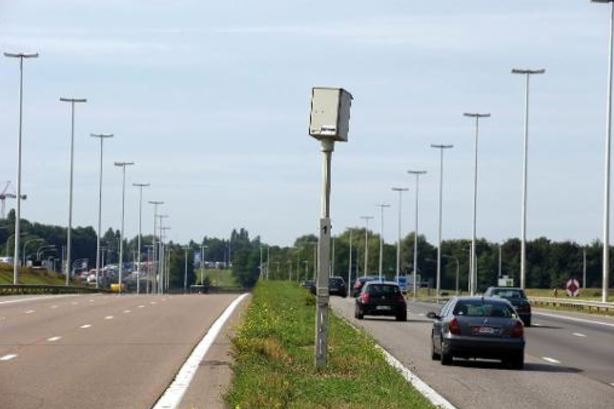Come summer, speed checks on motorways will be active at all times and without tolerance margins, announced Federal Justice Minister Vincent Van Quickenborne after a successful pilot project on seven motorways.
On various motorways, a pilot project to drop tolerance margins and quotas was launched in October. Only a technical margin of error remained: for permitted speeds under 100 km/h, this is 6 km/h. When driving faster than 100 km/h is allowed, there is a margin of 6% of the permitted speed.
On five Walloon motorway stretches, the speed camera started at 129 km/h instead of 141 km/h. On two Flemish sections, speed checks were in place permanently instead of only during two weeks per month.
As would be expected, activating the speed checks for the entire month instead of just two weeks saw the number of people caught speeding double. By dropping the tolerance margin in Wallonia, five times more speeding offences were detected. This resulted in some 30,000 extra fines being issued, Van Quickenborne announced.
However, he expects the increase to only be temporary. "We know from experience that in less than a year the number of offences detected returns to the previous level because people change their driving behaviour and moderate their speed."
Related News
- Average speed on Belgian motorways dropped by 10km/h
- More than 1.66 million drivers in Flanders caught speeding in first half of 2021
- Tolerance margin before ticketing speeding drivers in Belgium will soon disappear
Where the tolerance margins were dropped, the average corrected speed fell from 130 km/h to 120 km/h, which, represents enormous progress in terms of road safety, according to research by the traffic institute VIAS. The risk of fatalities would be reduced by more than 30%.
Additionally, the police and the public prosecutor's office will also receive extra resources to handle fines: in the Regional Processing Centres of the federal police, 58 extra people will be deployed this year, according to Van Quickenborne. The public prosecutors' offices and the police courts will also be reinforced.
Last year, 484 people died as a result of accidents on Belgian roads, compared to 644 in 2019, before the coronavirus restrictions and stay-at-home orders impacted traffic – proportionately a lot more than in many other European countries.
What does a speeding violation on Belgian motorways cost?
In Belgium, anyone who gets caught driving up to 10 km/h too fast on the motorway, after deduction of the technical margin, will pay €53. They will receive a "proposal for immediate collection."
For violations of more than 10 km/h, the fine is €53, plus €6 for each additional km/h too fast. At 140 km/h that is €113, at 150 km/h €173 and at 160 km/h €233.
Drivers who are caught going over 160 km/h will be summoned to appear before a police court with a chance of a higher fine and a driving ban.

